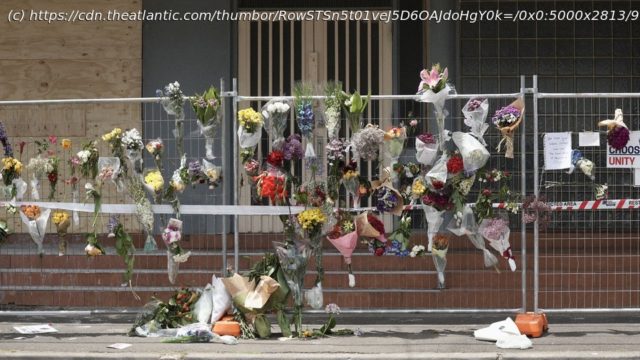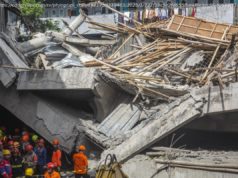Tehran is at war with itself over relations with the West.
Australia is not known for picking fights. It prioritizes trade and has diplomatic relations with almost every country in the world—even the reclusive North Korea. But on Tuesday, it did something it hadn’t done since World War II: It expelled an ambassador.
Shutting down the Iranian embassy, the Australian government declared Ambassador Ahmad Sadeghi persona non grata and ordered him and three other Iranian officials to leave within three days. Additionally, it designated Iran’s Islamic Revolutionary Guards Corps as a terrorist organization.
The decisiveness of Canberra’s actions is a measure of the extremity of Iran’s behavior. According to Prime Minister Anthony Albanese, Australian security forces have “credible intelligence” linking Iran to several attacks on Australian Jews last year. Iran is specifically accused of organizing an act of arson on a kosher restaurant in Sydney last October and another on the Adass Israel Synagogue in Melbourne in December.
I took an interest in these attacks when they happened last year, because I suspected that Iran was involved. One might think the assaults were too clumsy and amateurish to have been the work of a state apparatus. But those of us who have tracked the IRGC’s overseas activities through the years recognized the playbook: The militia works with a decentralized network of criminal actors, including drug cartels and crime syndicates, as well as petty thieves here and there. Its targets have long included ordinary Jewish civilians—the best-known incident in this regard was the 1994 bombing of a Jewish community center in Buenos Aires, which killed 85 people and remains the deadliest terror attack in Argentine history.
In recent years, Iran has tried (and mostly failed) to strike Jewish or Israeli targets in South Africa, Kenya, Sri Lanka, Cyprus, Turkey, Germany, the Netherlands, and Sweden—pretty much anywhere it could possibly reach. Many of these plots were haphazard and done on cheap; the regime encourages its global adherents to take any shot they can, even when their chances of success are limited. The point is to intimidate Jews and the West and to show off Iran’s asymmetric capabilities.
The Iranian regime’s reasoning here is baffling on its face. The country is risking diplomatic opprobrium and further isolation just to conduct shoddily executed assaults on civilians who pose no threat to it. But like so much else in Iranian politics, the rationale is tied up in the country’s internal divisions. The elements organizing the attacks are ideological. They seek to burnish Iran’s image as an aggressive, revisionist actor, determined to destabilize the West and unconstrained by practical concerns. Inside the regime, this faction competes with a more pragmatic group that prioritizes trade and seeks to improve relations with the West. Those behind the hits on Australian targets may even see their activities as having a dual use: By striking synagogues and restaurants in Western countries, they intimidate their global enemies and help stymie the diplomatic agenda of pragmatists at home.






